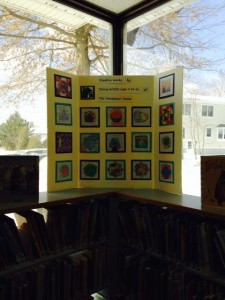We often think of children at school only in the happiest sense, playing and exploring together, finding joy in their discoveries, and enjoying time with their friends. But a classroom, like the world outside it, is a mix of personalities, with varying maturity levels, backgrounds, expectations, and abilities. Sometimes those personalities clash, that happy setting is disrupted by conflict, and the children involved in the conflicts need to navigate their way back to a peaceful setting. Fortunately, teachers of young children are in a special position to teach children the peacemaking skills they need to resolve their conflicts and manage their anger, both now and in the future.
Action Research conducted by our Director, Maria Morningstar, explored the various types and sources of classroom and playground conflicts, and the effects of a peace curriculum in reducing and resolving those conflicts. The purpose of her study was to determine whether teaching children about peace would help them to reduce or resolve conflicts in the classroom.
The study took place in a suburban Montessori classroom of 26 children, ages three to six years. The data collected included observations of children’s conflicts and resolutions, conferences with the children and teachers, and children’s journal writings.
The results: as the peace curriculum was implemented, there was a clear reduction in the number of daily conflicts among the children, and children involved in conflicts shifted from requiring a lot of teacher involvement to resolve their conflicts to needing little or no teacher involvement in the resolution.
You may access the research abstract, presentation slides, or the entire study here: SOPHIA: The Effects of a Peace Curriculum on Reducing and Resolving Conflicts among Children Ages 3-6 Years








